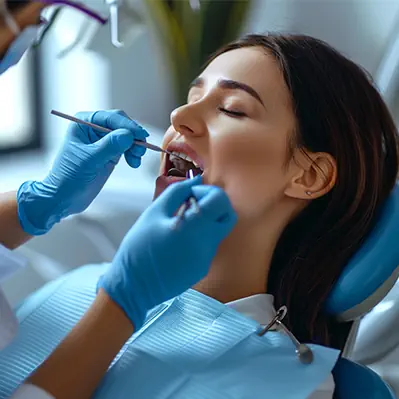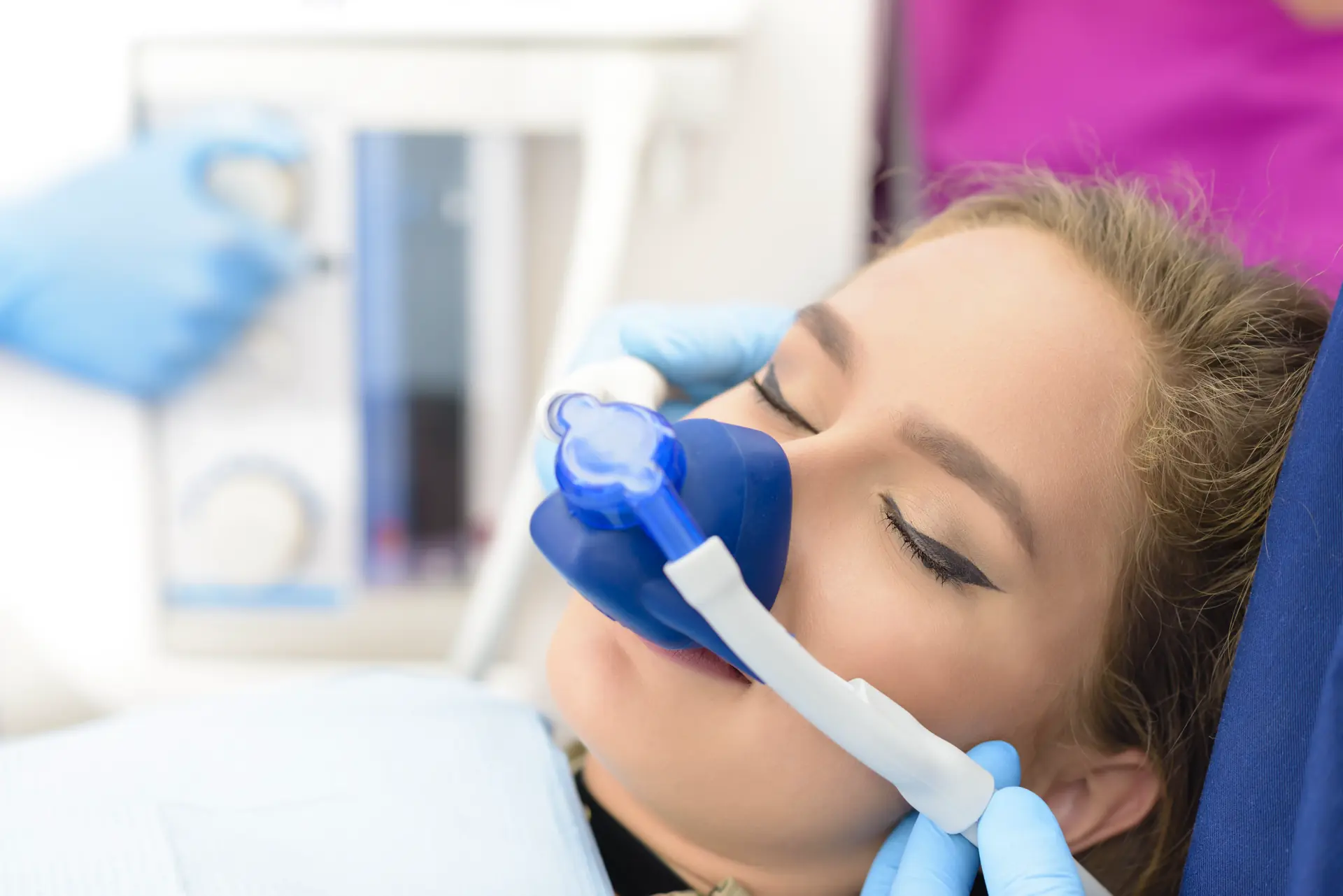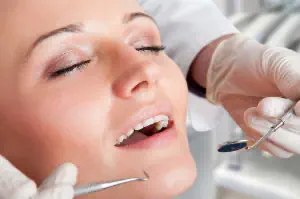WHEn Sedation Is Needed
Some patients may be more obligated to use dental sedatives, depending on the procedure and their backgrounds. The following are common reasons and procedures that we use dental sedation:
- Dental Anxiety: Sedation can help mentally calm patients with bad dental anxiety or who have had previous bad experiences so they can get the professional dental care they need.
- Physical Limitations: Dental sedation helps relax a patient’s body physically for people who have a hard time sitting still or a sensitive gag reflex.
- Root Canals: Sedation can help mitigate pain as the dentist focuses on sensitive areas of the gums.
- Root Scaling and Planing: Sedation alleviates discomfort and pain during this procedure.
- Tooth Extractions: Sedation allows a patient’s teeth to be extracted painlessly and precisely.
If you or your family members could benefit from sedation dentistry, don’t hesitate to consult with Drs. Mark and AnneMarie to discuss which option is best.

Why Is Dental Sedation Helpful?
Many patients with dental anxiety understand how important getting dental care is, but even so, it can be difficult for them to gather the courage to visit the dentist. With sedation dentistry, many of these patients can feel at ease during dental treatment and receive the care they need.
Here are some benefits of sedation dentistry:
Enhanced Comfort
Dental procedures become more tolerable for patients with physical or mental difficulties when they use our sedation dentistry methods.
Reduced Anxiety
Patients who experience dental anxiety can utilize sedation options to undergo necessary treatments without stress.
Procedural Amnesia
Sedation can sometimes muddy or erase the memory of the dental procedure, reducing traumatic feelings or anxiety associated with the experience.
Give Sedation Dentistry a Try in Cleburne, TX
Say goodbye to dental anxiety and hello to a relaxing experience at Benage Dental Care! With options for nitrous oxide, IV sedation, and specialized sedation plans, we’ll transform you and your family’s stressful dental experiences into a calm, easy appointment. Don’t hesitate to let us know if we can do anything else to make your experience with us more enjoyable.
Nitrous Oxide: Mild Sedation
Nitrous oxide, commonly known as laughing gas, is an excellent option for patients with mild to moderate dental anxiety. Administered through a mask, nitrous oxide induces a state of relaxation while allowing you to remain conscious and aware during your dental procedure. If your family has younger children, this option may be more suitable for them.
We recommend nitrous oxide for patients who are dealing with:
- Dental Anxiety: Mild sedation can calm a patient down enough for dentists to perform more thorough dental work if the patient is scared or anxious.
- Gag Reflexes: Nitrous oxide can calm your body enough to reduce the sensitivity of your gag reflex during the procedure.
- Personalized Needs: Patients with behavioral, physical, or mental difficulties can benefit from minor sedation by calming anxieties and allowing the dentist to perform the service more precisely.
IV Sedation: Deeper Relaxation
For those seeking a deeper level of relaxation during dental procedures, we offer IV sedation. Administered intravenously, this method induces a profound state of calmness, ensuring that you remain comfortable and anxiety-free throughout your treatment.
IV Sedation is a great option for:
- More Strenuous Procedures: Extensive and long services like implants or root canals may require sedation methods. IV sedation helps dentists reach these areas without causing discomfort.
- Deep Dental Work: IV sedation can make it easier for the dentist to go deeper into your mouth for gum treatment or certain dental prosthetics.
- Dental Stress: For those with more complex dental anxiety, IV sedation can be an easier way to feel at ease during the procedure.
Benage Dental Care opts for IV sedation if a patient requires a higher level of sedation than nitrous oxide provides. This approach allows us to carefully monitor and adjust the sedation level as needed throughout the procedure.
Common Sedation Dentistry Misconceptions
Drs. Mark and AnneMarie Benage are ready to provide a comfortable and relaxing journey in their Cleburne, TX clinic. Don’t let fear prevent you from seeking the dental care you need—take the first step towards a positive dental experience! But first, let’s clear up some typical “myths” we hear about dental sedation.
Dental Sedation Causes “Brain Fog”
Dental sedation should leave you a bit drowsy or tired during and immediately following the procedure. This occurs because the sedatives help your body feel more at ease during the service.
Despite this effect, the sedative shouldn’t cause any long-term loss of memory or focus. For most patients, the effects will wear off within 12–24 hours.
You Are Always Unconscious During a Sedative Procedure
The main purpose of dental sedation is to maximize comfort and reduce potential procedural complications. With this in mind, many dental procedures do not require someone to be “put under” completely.
Benage Dental Care offers nitrous oxide as a part of our sedation dentistry, which simply relaxes the patient. These sedatives allow you to still be responsive when spoken to.
Receiving Sedation Is a Long Process
Thanks to medical advancements, sedatives generally take effect within a matter of a few minutes. In fact, sedatives often make the process feel like it is going quicker. You will be under sedation for as long as it takes to complete the procedure. Once the procedure is finished, you should be quickly on your way out the door.
On the day of your appointment, we will administer the sedation either by inhalation (nitrous oxide) or bloodstream (IV sedation). The procedure will be explained to you thoroughly before the sedation is administered.
Dental Sedation Is Only for Complex Procedures
Dental sedation is not just for patients needing root canals or major dental work. A major appeal of dental sedation for most patients is its ability to address dental anxiety in children and adults alike. Similarly, those with mental or physical concerns that make it difficult for them to receive essential oral treatment often request sedation options during their appointments.

